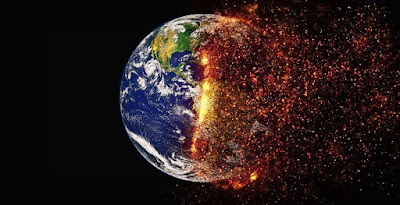Water and armed conflict, part 1.
Water and armed conflict,
occurrence of armed conflict
In our world today and due to the great development, that the world has witnessed in the last decades and the entry of water as one of the basic elements of human development in its various agricultural and industrial fields that all countries and countries of the world seek to achieve,
the conflict over water has become a clear reality with the development of the role of water as one of the topics International politics of strategic importance and long-term political plans, so water and the control of its sources were considered one of the most important elements of conflict, conflicts and tensions in the world.
Indeed, many researchers called the current century (the century of water) because of the pivotal roles in which water will play in the life of man in the future.
Water has become one of the most effective and most effective tools of political pressure exerted by some countries of the world that control the headwaters of rivers or water sources on countries that share the same resources with them, as pointed out by Mr. Peter Glick, President of the Pacific Institute, a US-based institution that works On the study of freshwater issues, he said, “He is concerned about a world in which water is an increasingly scarce resource and in which politics plays a strong role in determining water allocations across borders and perhaps most importantly within borders.
” Glick added, “We need strong institutions to manage Water-related tensions such as equitable economic redistribution programmes, communications management, and law, I am not optimistic about the continuation of the cooperation we have seen historically in the future if we do not begin to pay more attention to disputes over water that are indifferent to international borders or diplomacy.”
In 2001, the former Secretary-General of the United Nations, Kofi Annan, declared that “the intense competition for fresh water may become a source of conflict and war in the future.”.
Despite the importance of water and its great role in the occurrence of armed conflicts, cooperation, coordination and understanding among the countries of the world contribute to reducing the possibility of these conflicts.
As Janani Vivekananda, Director of Environment, Climate Change and Security in the Peacebuilding Issues Program at the
London-based International Alert, explained
, "If you analyze the issue of water like other resources, you will see an absence in many cases where we might expect to see conflict."

Comments
Post a Comment
Thank you for comment